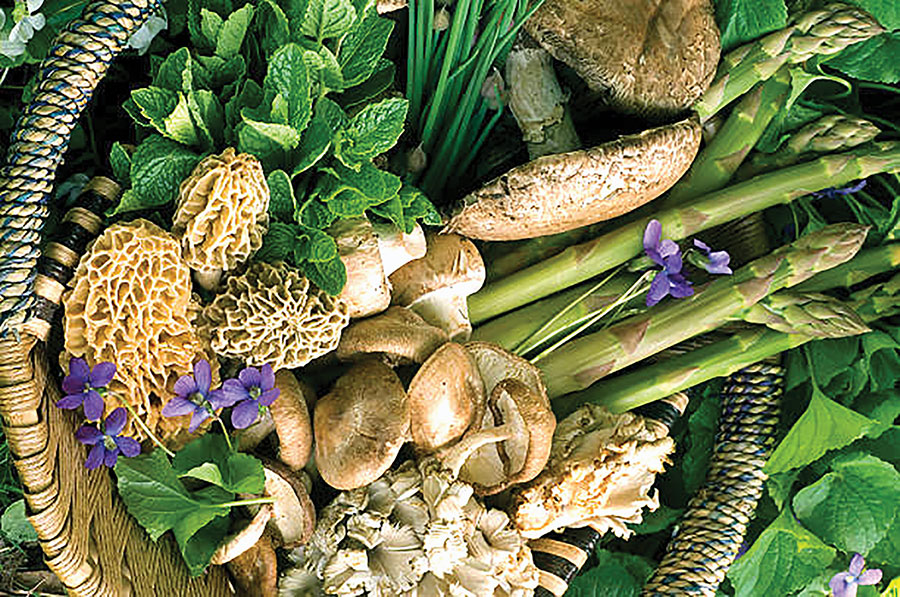WELLINGTON COUNTY – Spring is a great time to get outside and wander in the woods or along trails – the fresh green of new growth is rejuvenating and uplifting.
As you look around, are there edible plants you recognize?
Perhaps you’ve never foraged before, but this is one of the best times of year to do so.
Wild asparagus, wild garlic, watercress, fiddleheads, nettles or even the love-to-hate-them dandelions, are all great foods you can find if you know where to look.
The book that got me started remains one of my favourites on the subject: Stalking the Wild Asparagus by Euell Gibbons.
Now, if you’re thinking, “What is a Master Gardener doing talking about foraging wild things?” I would reply that a garden is any bit of nature that is tended. If you forage in an area, you’re doing just that.
But just like in a garden, we need to be mindful of the proper way of doing it.
If you can find a knowledgeable guide for your first times out, it will help you be both successful and safe.
There are also many books available on foraging in specific locales.
Tips to get you going
Only forage plants that you are 100 per cent accurately able to identify as being safe for human consumption. If in doubt, leave it alone.
Don’t forage any endangered plants.
Practice sustainable foraging and harvest only what you need – it is recommended to collect no more than five to 10% of the plants in a given area.
Only take the parts of the plants that you need. If it’s just the leaves, pick them off and don’t uproot the plant – this will allow the plant to continue to grow and provide you with even more produce when you come back to visit.
Don’t trample on other plants in your quest.
Ensure the area you’re foraging from is not private property, or that you have permission to do so if it is.
Don’t harvest from nature reserves, as these are set up to protect the species growing there.
Avoid areas that may have had chemicals applied or that are heavily trafficked.
While the adventure is part of the fun, you may also want to grow wild edible plants in your own back yard.
You can often find native plants at local nurseries. You may also gather seeds from the wild to sow in your yard.
It’s not recommended that you move plants from a natural area to your yard. The likelihood of survival from transplanting is low, and you may also inadvertently introduce other plants or pests that are in the soil.
Wild foraging can be a great way to deepen your understanding and appreciation of the environment around you.
It may also lead to you caring more about the area, cleaning up litter, and seeking to protect the precious resource you have come to enjoy.
Just imagine: a garden you never have to weed, water, or fertilize.
Nature does the work for you, while you can respectfully reap the harvest.
By Danielle Gignac
Guelph-Wellington Master Gardeners




